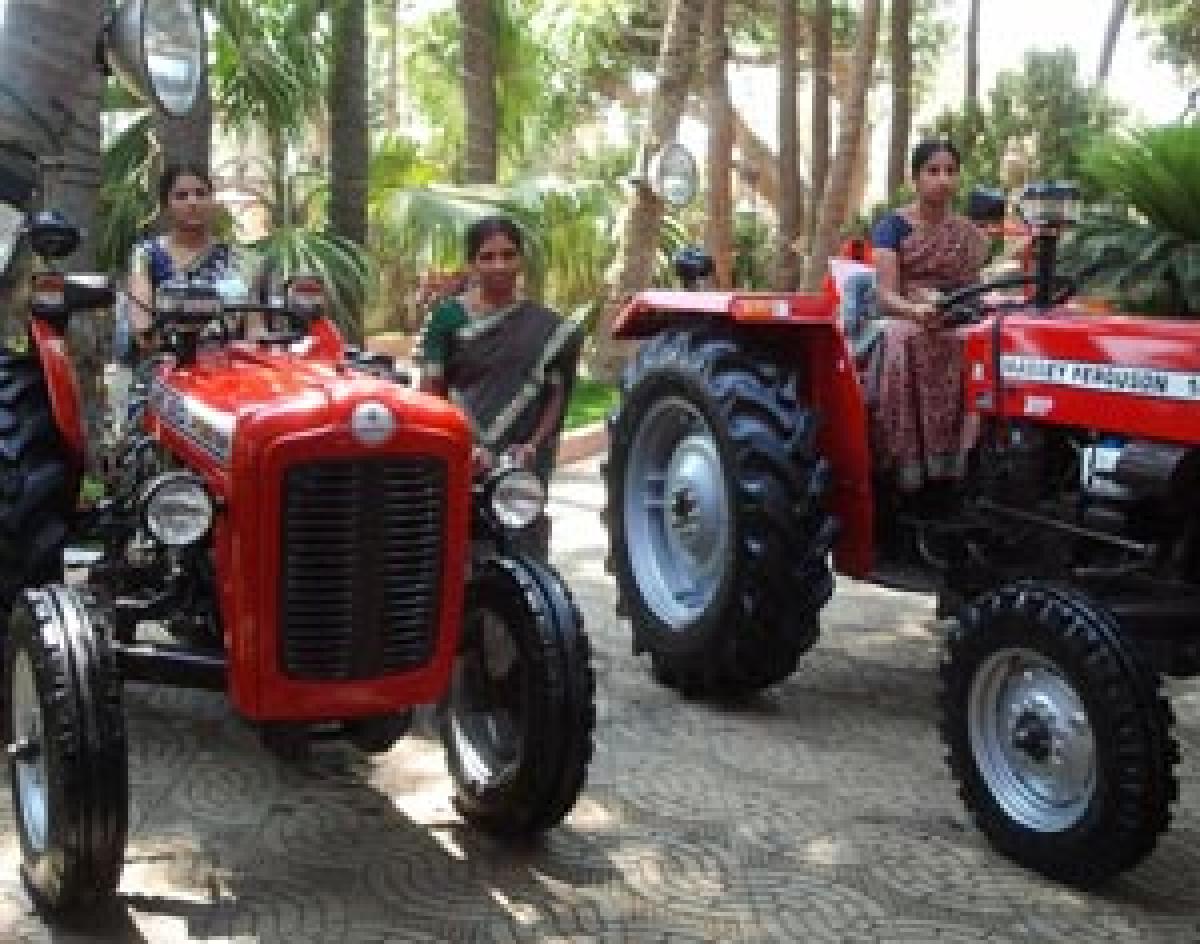Live
- All you need to know about PAN 2.0
- Akasa Air redefines travel experience with industry-first offerings
- MP: Residents stage protests against liquor shop in Indore
- Telugu Actor Shri Tej Booked for Alleged Cheating and False Promise of Marriage in Live-in Relationship
- Toyota Kirloskar Motor Celebrates 1 Lakh Urban Cruiser Hyryder on Indian Road
- MLS: New York City FC part ways with head coach Nick Cushing
- Delhi CM says Centre cutting AAP voters’ names from rolls, BJP hits back
- Hyderabad Metro Rail Phase-II Works to Begin in Old City in January 2025
- Odisha: 668 persons killed in human-elephant conflicts in last three years
- DEFENDER JOURNEYS: TO EMBARK ON ITS THIRD EDITION FROM NOVEMBER 2024
Just In

Men are migrating to cities, leaving behind women in villages. That\'s impacting agriculture as women find it difficult to use heavy equipment used for farming. But that is going to change as the government plans to develop women-friendly equipment to sustain agriculture. \"Large numbers of men are migrating in search of jobs.
Climate Change
Changes in temperature and precipitation, increased frequency of extreme events such as drought and floods, as well as the accelerated melting of the Himalayan glaciers have raised concerns about the future of agriculture and food production
New Delhi: Men are migrating to cities, leaving behind women in villages. That's impacting agriculture as women find it difficult to use heavy equipment used for farming. But that is going to change as the government plans to develop women-friendly equipment to sustain agriculture. "Large numbers of men are migrating in search of jobs.
This is due to severe drought and other natural disasters caused by the climate change. These men are leaving behind women who cannot cultivate the land as most of the equipment used for farming are heavy and meant for men," R B Sinha, Joint Secretary to Union Ministry of Agriculture and Farmers Welfare, said.
The capacity of women has to be enhanced to sustain agriculture in the country in view of demographic and socio-economic changes in rural areas due to climate change, Sinha said. "With men migrating, the government has to equip women in rural areas with friendly technologies to sustain agriculture," he said here last week during the Knowledge Forum on Climate Resilient Development in Himalyan and Downstream Regions.
The event was organised jointly by the Ministry of Agriculture and Farmers Welfare, Kathmandu-based International Centre for Integrated Mountain Development (ICIMOD) and Delhi-based IEG. "Mechanisation development division of the agriculture ministry and Indian Council of Agriculture Research (ICAR) are working together to innovate women-friendly agriculture equipment," Sinha said.
"Work has started to design women-friendly equipment and techniques to help small and marginal farmers, mostly women," he added. Sinha said the government will provide subsidies on the women-friendly agriculture equipment to encourage its use. Changes in temperature and precipitation, increased frequency of extreme events such as drought and floods, as well as the accelerated melting of the Himalayan glaciers have raised concerns about the future of agriculture and food production, and its ability to keep up with the growing demands.
Experts have repeatedly said that men are migrating from the rural areas due to climate change. According to ICIMOD, majority of people in the Himalayan region live in rural areas and depend on agriculture for their livelihood. Climate change, population growth, rural-urban migration and other socio-economic changes have impacted agriculture. Keeping that in mind, the government has now stepped in to ensure that even if men migrate, women in the rural areas take up agriculture. The focus is on these women whose hard work will drive this sector in the future. It's a step to secure our food plate.
By Imran Khan

© 2024 Hyderabad Media House Limited/The Hans India. All rights reserved. Powered by hocalwire.com







